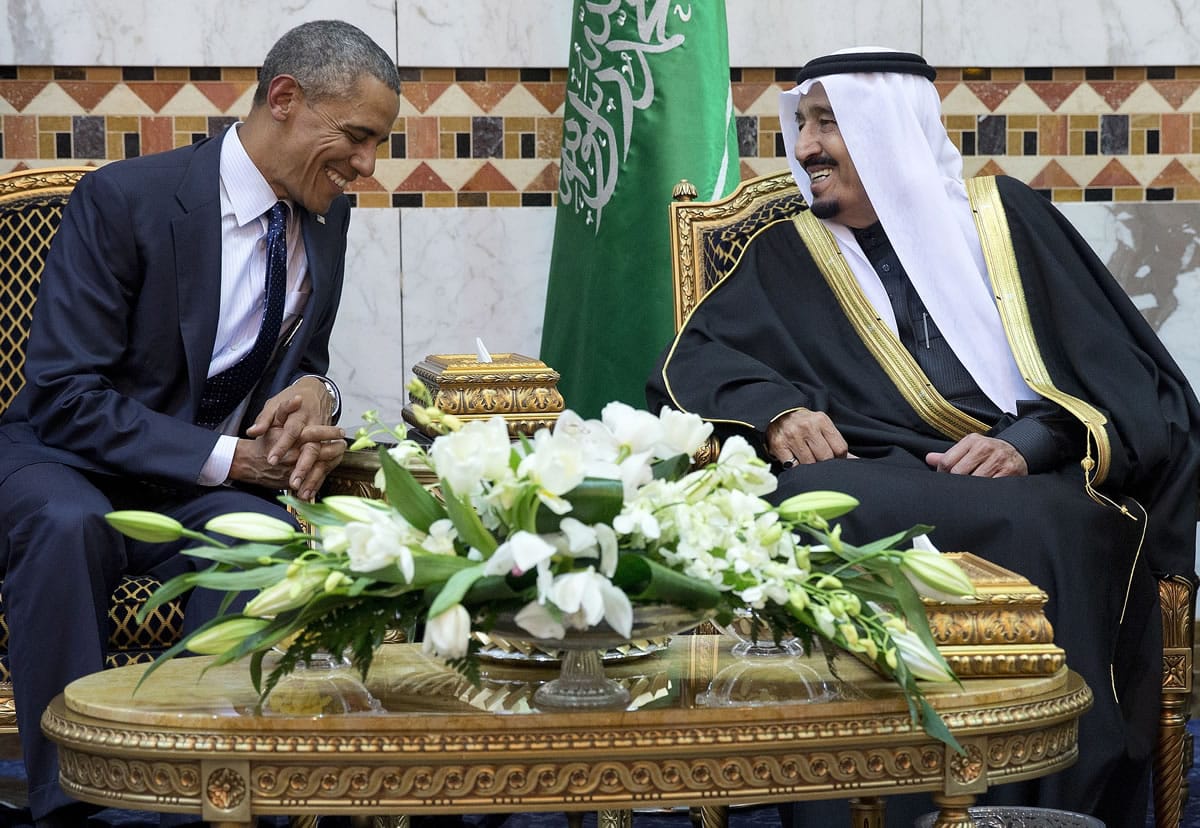WASHINGTON — The White House on Monday raced to dispel the notion that President Barack Obama’s efforts to reassure anxious Persian Gulf nations about his overtures to Iran were unraveling ahead of a rare Camp David summit this week.
Officials insisted there was no weakening in ties between the U.S. and the Gulf, despite the fact that just two other heads of state will join Obama for Thursday’s meetings at the presidential retreat in the Maryland mountains. The rulers of Saudi Arabia, the United Arab Emirates, Bahrain and Oman are skipping the summit and instead sending lower-ranking, yet highly influential representatives.
“We very much feel we have the right group around the table,” said Ben Rhodes, Obama’s deputy national security adviser.
The absence of Saudi Arabia’s newly crowned King Salman in particular has sparked questions about summit’s effectiveness. The Saudis are bitter rivals with Iran and among the most outspoken critics of Obama’s nuclear detente with Tehran.
Adding to the diplomatic intrigue: Saudi Arabia’s announcement Sunday that Salman would not travel to the U.S. came just two days after White House officials said Obama and the king would hold one-on-one talks in Washington ahead of the Camp David meeting.
“The open hand has been turned away,” Jon Alterman, senior vice president at the Center for Strategic and International Studies, said of the Saudi decision.
While the White House and Saudi officials deny Salman is snubbing the U.S., the absence of the king and other heads of state does cast a shadow over Obama’s summit. For a president who rarely invites world leaders to Camp David and chafes at the choreographed diplomacy of global summits, his invitation to the Gulf leaders was an unusually personal overture and underscored the importance he places on alleviating potential obstacles to an Iran nuclear deal.
The White House insisted there would still be substantive discussions about Obama’s pursuit of a nuclear accord, as well as Tehran’s meddling in the Middle East, which is perhaps an even greater concern to the Gulf. Obama and King Salman discussed the summit by phone Monday, the White House said.
Saudi Foreign Minister Adel al-Jubeir joined the White House in denying tensions between the two countries and called suggestions of a snub “really off-base.” He said the king decided to stay in Saudi Arabia to oversee a cease-fire agreement in Yemen, where his country is engaged militarily.
Even before the guest list for the Camp David meeting was finalized, there appeared to be a growing divide between what the Gulf nations are seeking from the U.S. and what Obama is willing to offer. Some Arab nations want a formal, written agreement with Washington that would require the U.S. to come to their defense if they were to come under attack from Iran or another outside actor. The U.S. has a similar arrangement with Japan.
Administration officials said the U.S. has told Gulf states it would not offer a defense treaty.



